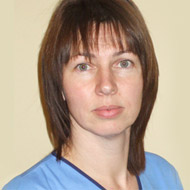
Elizabeth Cox calls for RVNs to be more engaged with VN Council
"I admire leaders that inspire others and take people with them on a journey," says Elizabeth Cox, who is standing for re-election to VN Council this year. "I'm a firm believer in teams."
Elizabeth, who is currently employed as a senior nurse at Golden Valley Veterinary Hospital near Bristol, has been involved in the profession for the past 20 years. She is currently Vice Chairman of the VN Council, having joined in 2011.
If re-elected to VN council, Elizabeth hopes to further raise the profile of the veterinary nursing profession, ensuring that the work and word of the nurse is included throughout the College's work.
"The legal protection of the title veterinary nurse is the major focus," she said. "I personally want to get RVN's more engaged with VN Council and understand what we do. We need to all work together to get the public understanding our role and raise our profile."
Elizabeth hopes to do this by improving communication between the RCVS and the profession.
"The RCVS are no longer an awarding body, therefore nurses do not associate us with the exam process. Already, we have noticed more RVNs approaching us at events, this really pleases me."
"To start with, i'd like RVNs to do this more! Come and talk to us at the various congresses and events across the country. I recently hosted a regional question time nursing stream. We had lots of questions and we ran out of time! However, the college does use social media and direct emails. I do feel that two-way communication is an area we can work on."
To read our full interview with Elizabeth, visit www.vetcommunity.com. Log in or sign up for a free account to discuss the elections in the VetCommunity chatter zone



 The Federation of Independent Veterinary practices (FIVP) has announced a third season of its podcast, Practice Matters.
The Federation of Independent Veterinary practices (FIVP) has announced a third season of its podcast, Practice Matters.